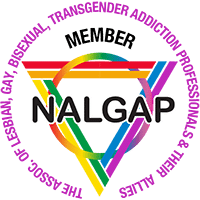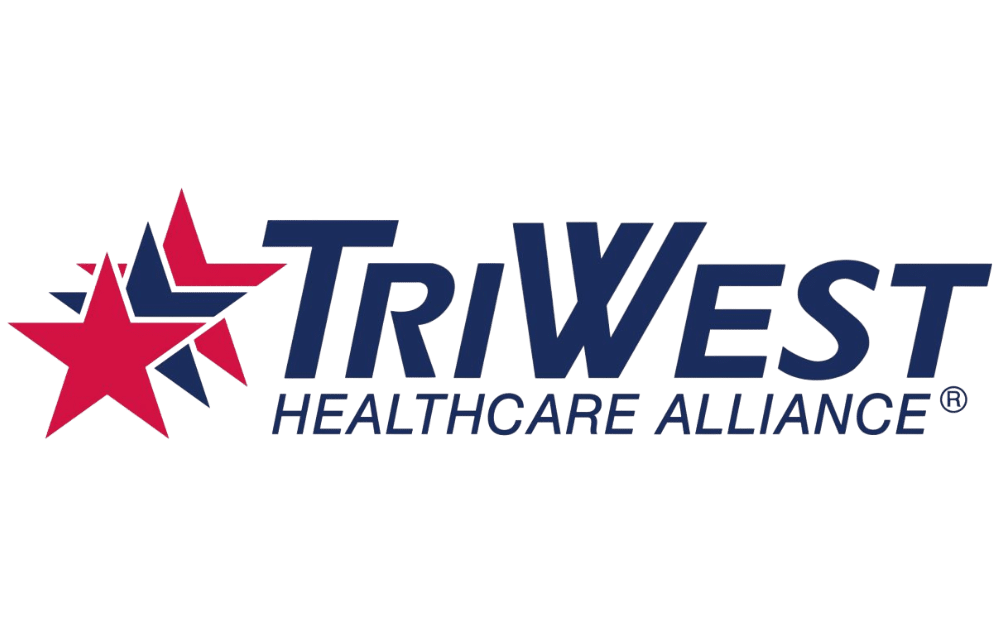Rehab places in Colorado
The Essence of Rehab Places in Colorado
In the picturesque state of Colorado, the quest for effective rehabilitation is as diverse as its mountainous landscape. From urban environments like Denver to the serene outskirts, Colorado presents a plethora of rehab centers aiming to tackle substance abuse and mental health disorders head-on. These centers offer various treatments, ranging from traditional therapies to holistic approaches, all tailored to meet individuals’ specific needs.
The Mile High Recovery Center, a prominent facility in Denver, stands out for its comprehensive and patient-centered approach. It incorporates evidence-based clinical therapies with experiential modalities, providing a unique blend that ensures both mental and physical recovery. This model is particularly effective as it caters to the diverse requirements of its clientele, including those with dual diagnoses.
Innovative Treatment Approaches
Rehab places in Colorado excel in merging traditional therapy with innovative techniques. Mile High Recovery Center, for example, offers a harmonious blend of Cognitive Behavioral Therapy (CBT), Dialectical Behavior Therapy (DBT), and motivational interviewing alongside experiential therapies like adventure therapy and equine-assisted therapy. This integrative approach is designed to address the complexities of addiction and mental health issues, ensuring a comprehensive recovery process.
Equine-assisted therapy, used by Mile High, employs horses to nurture personal growth and healing. Participants develop trust, empathy, and emotional regulation as they interact with horses, creating a powerful catalyst for change. Art and music therapies further enhance the recovery experience by allowing individuals to express emotions and ideas creatively, thus fostering self-discovery and healing in a supportive environment.
Nutrition education is another innovative strategy implemented by many rehab centers. Proper nutrition plays a significant role in recovery, aiding both physical health and mental well-being. Through workshops and counseling, patients learn to make healthier choices, equipping them with lifelong skills that support sobriety and overall wellness.
Comprehensive Patient Support
Rehab centers in Colorado prioritize holistic support, recognizing that recovery goes beyond mere abstinence. Mile High Recovery Center exemplifies this by providing a continuum of care, from residential treatment to outpatient services and alumni support. This seamless transition from one phase to another ensures sustained recovery and long-term success.
Residential treatment offers a structured environment where individuals can focus on healing without outside distractions. With 24-hour access and same-day admissions, Mile High emphasizes accessibility and immediate care, essential factors in managing the critical early stages of recovery.
Post-treatment, ongoing support is crucial for maintaining progress. Mile High’s alumni community fosters connection and accountability among past clients, providing encouragement and shared experiences. This network is invaluable in reinforcing new behaviors and preventing relapse, demonstrating the center’s commitment to continuous support.
Holistic Approaches to Healing
Holistic therapies are gaining recognition among rehab places in Colorado for their ability to address the physical, emotional, and spiritual aspects of recovery. Mile High Recovery Center incorporates yoga, meditation, and mindfulness practices to complement its clinical therapies. These practices foster self-awareness, promote relaxation, and help individuals develop coping mechanisms to manage stress and cravings.
- Yoga integrates physical postures with breath control and meditation, enhancing mindfulness and reducing anxiety.
- Meditation encourages introspection and emotional regulation, crucial for navigating the challenges of recovery.
- Mindfulness cultivates a non-judgmental awareness of the present moment, empowering individuals to respond to life’s challenges thoughtfully.
Inclusivity and Community Support
Rehab places in Colorado, like Mile High Recovery Center, emphasize inclusivity and community engagement, recognizing the diverse backgrounds and needs of individuals seeking aid. By welcoming adults, adolescents, and families, these facilities create an environment where everyone feels supported and understood.
Inclusivity is further demonstrated through specialized programs for the LGBTQ community, veterans, and individuals requiring family therapy. These targeted services acknowledge the unique challenges faced by different demographics, providing tailored support to foster healing and acceptance.
Community involvement is a vital component of Mile High’s philosophy. By collaborating with local healthcare providers, insurers, and community organizations, the center enhances its support network, facilitating smooth transitions and integrated care plans. This community-focused approach underscores the significance of collective effort in achieving lasting recovery.
Exploring Addiction and Mental Health
The interplay between addiction and mental health disorders is a significant focus for rehab places in Colorado. Mile High Recovery Center excels in providing dual-diagnosis treatment, addressing both substance use disorders and co-occurring mental health conditions such as anxiety, PTSD, and bipolar disorder. This comprehensive approach ensures that all facets of a person’s well-being are considered, promoting long-term recovery.
Understanding this interplay is crucial, as untreated mental health issues can exacerbate addiction, creating a cycle that is difficult to break. By integrating mental health services into their treatment plans, facilities like Mile High empower individuals to heal holistically, reducing the likelihood of relapse and enhancing overall quality of life.
The Role of Evidence-Based Therapies
Evidence-based therapies form the cornerstone of effective rehabilitation programs in Colorado. Mile High Recovery Center leverages therapies like CBT and DBT, grounded in scientific research and proven to yield positive outcomes. These methodologies focus on changing negative thought patterns and behaviors, equipping individuals with the skills needed for sustained recovery.
Additionally, the use of EMDR (Eye Movement Desensitization and Reprocessing) is gaining traction in trauma-informed care. EMDR helps individuals process traumatic memories, mitigating their impact on present behavior and emotional health. This therapy is particularly beneficial for those with PTSD, offering hope and healing through structured interventions.
Integrating Medical Management and Therapeutic Experiences
Medical management, coupled with therapeutic experiences, forms a powerful combination in the treatment landscape of Colorado. Facilities like Mile High Recovery Center utilize medication-assisted treatments (MAT) such as Suboxone and Vivitrol to manage withdrawal symptoms and reduce cravings. These medications play a crucial role in stabilizing patients, allowing them to focus on the therapeutic aspects of treatment without the constant distraction of physical discomfort.
Alongside medication, Mile High emphasizes hands-on therapeutic experiences that enrich the recovery process. Activities such as art therapy, music therapy, and adventure therapy offer creative outlets for expression and healing, facilitating personal growth and resilience. This blend ensures a well-rounded treatment approach that addresses both physiological and emotional needs.
Building Resilience Through Life Skills
Empowering individuals with necessary life skills is a pivotal focus for rehab places in Colorado. Mile High Recovery Center incorporates life skills education into its programs, equipping clients with the tools needed to navigate life’s challenges post-treatment. This education encompasses practical skills such as budgeting, job searching, and effective communication, fostering independence and self-sufficiency.
Moreover, by integrating relapse prevention strategies and coping skills, Mile High prepares individuals for the realities of recovery, enhancing their resilience in the face of potential setbacks. These skills are crucial in maintaining long-term sobriety and ensuring a transition into a fulfilling, substance-free life.
Through a combination of therapy, education, and support, Colorado’s rehabilitation centers aim to instill a sense of hope and empowerment, guiding individuals toward a brighter future.
What are the common misconceptions about rehab centers in Colorado?
One prevalent misconception is that all rehab centers are alike, offering uniform services and approaches. In reality, Colorado is home to a diverse array of facilities, each with its own unique treatment methods and philosophies. For instance, while some centers might focus on traditional therapeutic interventions like Cognitive Behavioral Therapy (CBT), others may incorporate holistic practices such as equine-assisted therapy or mindfulness training.
Another misconception is that rehabilitation merely involves detoxification. While detox is a critical component, effective treatment addresses the underlying psychological, emotional, and social factors contributing to addiction. Facilities like Mile High Recovery Center offer a comprehensive approach that includes medical management, therapeutic experiences, and life skills education, which is essential for long-term recovery.
Additionally, many believe rehab is only for severe addiction cases. In truth, early intervention can prevent the progression of substance use disorders. Whether struggling with a recent lapse into substance use or dealing with long-standing addiction, the right program can be tailored to meet individual needs.
Reflecting on these misconceptions can lead to a deeper understanding of the multifaceted nature of addiction treatment. Have you encountered any other assumptions that might need reevaluation?
How does Mile High Recovery Center ensure a tailored treatment approach?
Mile High Recovery Center recognizes that each individual’s journey to recovery is unique, which is why they prioritize a personalized approach from the outset. Beginning with a comprehensive assessment, the center evaluates the specific needs, history, and goals of each client. This initial step allows the team to develop a customized treatment plan that integrates evidence-based therapies with experiential modalities.
For example, if a client struggles with co-occurring mental health issues such as anxiety or PTSD, Mile High incorporates dual-diagnosis treatment to address both the addiction and the underlying mental health condition. By offering a continuum of care that includes residential treatment, outpatient services, and alumni support, the center ensures that clients receive the support and resources they need at every stage of their recovery journey.
By blending medical management with therapeutic experiences, Mile High provides a holistic framework that caters to the diverse aspects of recovery. This approach not only promotes physical sobriety but also emotional and mental well-being, which are critical for sustainable recovery.
Are there specific elements of a tailored treatment approach that you find particularly valuable or interesting?
What role do community support and inclusivity play in rehabilitation?
Community support and inclusivity are foundational to successful rehabilitation, providing a sense of belonging and acceptance that is crucial for recovery. At Mile High Recovery Center, a community-focused approach is emphasized to enhance the support network available to patients. This involves collaboration with local healthcare providers, insurers, and community organizations, which facilitates smooth transitions and integrated care plans.
Inclusivity ensures that individuals from diverse backgrounds receive appropriate care and support. Specialized programs cater to the unique needs of different demographics, including the LGBTQ community, veterans, and families. This tailored support acknowledges the varied challenges faced by different groups and fosters an environment of understanding and healing.
The alumni community at Mile High exemplifies the power of community support. By providing a network of shared experiences and continuous encouragement, alumni support groups play a vital role in reinforcing new behaviors and preventing relapse.
Have you experienced or heard about any community initiatives that effectively support recovery?
How do evidence-based therapies enhance addiction treatment?
Evidence-based therapies form the backbone of effective addiction treatment by using scientifically validated approaches to address the complex nature of substance use disorders. Therapies such as Cognitive Behavioral Therapy (CBT) and Dialectical Behavior Therapy (DBT) are integral at Mile High Recovery Center, focusing on modifying negative thought patterns and behaviors.
CBT, for instance, helps clients develop coping strategies to manage cravings and triggers, while DBT emphasizes emotional regulation and interpersonal effectiveness. These therapies equip individuals with practical skills necessary for long-term recovery and personal growth.
Additionally, Eye Movement Desensitization and Reprocessing (EMDR) is employed to address traumatic memories, which often play a role in addiction. By processing and desensitizing these memories, EMDR reduces their impact on present behaviors, enhancing emotional health and recovery outcomes.
Understanding these therapies’ roles can provide greater insight into the recovery process. Are there other evidence-based approaches you’ve encountered that you’d like to learn more about?
What innovative therapies are used in Colorado rehab centers?
Rehabilitation centers in Colorado are at the forefront of innovation, integrating novel therapeutic approaches to address the complexities of addiction and mental health. Mile High Recovery Center, for instance, combines traditional therapies like CBT and motivational interviewing with experiential therapies such as adventure therapy and equine-assisted therapy.
Equine-assisted therapy, in particular, promotes emotional regulation and personal growth through interactions with horses. This non-verbal form of therapy encourages the development of trust and empathy, which can be transformative for individuals in recovery.
Art and music therapies also offer creative outlets for expression and healing. These modalities allow individuals to explore their emotions and ideas in a supportive environment, fostering self-discovery and resilience.
Integrating these innovative therapies demonstrates a commitment to holistic healing and offers clients diverse pathways to recovery. Do any of these therapies resonate with you, or are there others you are curious about?
Resources
- Substance Abuse and Mental Health Services Administration (SAMHSA) – SAMHSA is the leading agency in the United States working to reduce the impact of substance abuse and mental illness on America’s communities.
- American Psychiatric Association (APA) – The APA is the leading psychiatric organization in the world, with more than 37,800 psychiatric physicians from the United States and around the globe.
- National Alliance on Mental Illness (NAMI) – NAMI is the nation’s largest grassroots mental health organization dedicated to building better lives for the millions of Americans affected by mental illness.
- National Institute on Drug Abuse (NIDA) – NIDA’s mission is to lead the nation in bringing the power of science to bear on drug abuse and addiction.
- National Institute of Mental Health (NIMH) – NIMH is the lead federal agency for research on mental disorders.
- Centers for Disease Control and Prevention (CDC) – The CDC is one of the major operating components of the Department of Health and Human Services and is recognized as the nation’s premier health promotion, prevention, and preparedness agency.
















